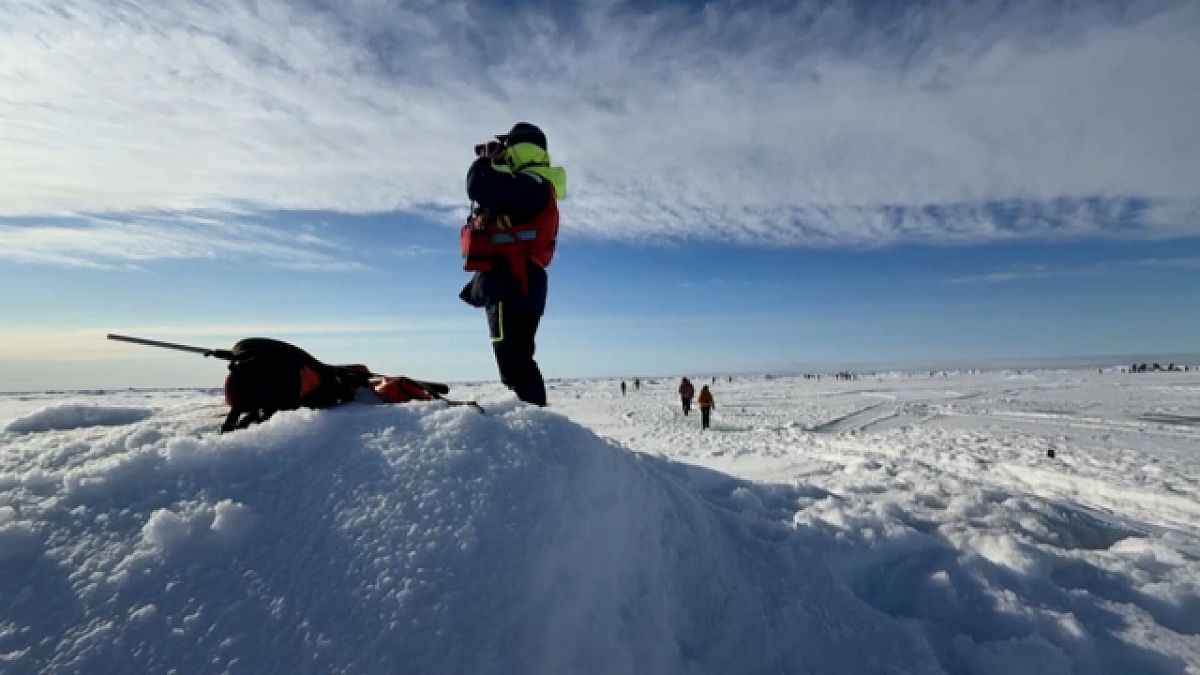

In the midst of the icy landscapes and diplomatic corridors, notable events are unfolding that capture the spirit of human resilience and the ever-evolving dynamics of international relations. From the frosty terrains of the North Pole to the strategic realignments in Eastern Europe, these developments underscore themes of perseverance and global interactions.
Earlier this week, the serene, otherworldly environment of the North Pole hosted an extraordinary gathering of athletes who took part in the Summer edition of the North Pole Marathon. Ninety-one participants from twenty-two nations arrived to challenge not only their physical limits but also the whims of Mother Nature. The climate at the top of the world proved no small feat, with competitors navigating a challenging -8°C (17.6°F) amidst shifting sea ice. The dedication of these runners exemplifies the enduring human spirit, pushing past boundaries in a quest for personal and collective achievement. Each stride on the precarious icy surface echoed stories of commitment and unity, threading a tapestry woven from diverse cultures converging for a single purpose.
Meanwhile, in a significant geopolitical development, Serbia’s recent diplomatic pivot towards the West has stirred reactions globally. As Serbia reorients its foreign policy stance, focused on building stronger ties with Western nations, this strategic shift has caught the attention of major world powers, including Russia. The recalibration marks a potential shift in the geopolitical landscape of Eastern Europe, with broader implications for international diplomacy and regional stability.
The Kremlin’s response to Serbia’s overtures towards Western alliances has sparked debate on the extent to which Russia might react. Observers note that this move represents a broader trend of countries in the region reassessing their traditional alliances and exploring new partnerships in a rapidly changing global order. Against this backdrop, the United States, under President Trump’s administration, remains vigilant, deliberating on potential responses as it assesses Moscow’s next move.
Ambassador John B. Craig points out that Washington’s focus has heightened in response to what it perceives as Moscow’s “rogue activities” in its neighboring regions. The unfolding situation raises questions about potential shifts in U.S. policy and the continuance of sanctions that have been in place to curb Russian aggression and influence. While it remains to be seen how far these developments will unfold, the current trajectory marks a clear signal of Serbia’s intent to engage with new partners on the global stage.
The interplay of sportsmanship in the North Pole and diplomacy in Europe serves as a poignant reminder of the complexities and capabilities of humanity. While athletes defy freezing temperatures to cross finish lines literally carved out of snow and ice, nations grapple with crossroads that could reshape alliances and policies. Ultimately, each development invites reflection on resilience and adaptation, key themes in the ever-evolving narrative of human engagement. Such endeavors, whether in fitness or diplomacy, reflect shared aspirations for a world knitted together by collaboration and mutual respect.
As both the marathon concludes with its triumphant stories, and diplomatic dialogues continue in corridors of power, the world watches, hopeful for positive outcomes that enhance peace and understanding across global communities. In these quiet yet powerful moments, the message is clear: human initiatives—whether in athletics or diplomacy—possess the potent ability to foster connections amid challenges, underscoring the timeless journey towards progress and unity.
Source: {link}
